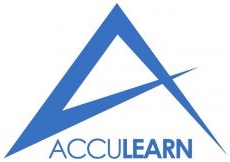Objectives:
- Apply the framework of financial statements analysis.
- Demonstrate skills at the foundations of ratio and financial analysis.
- Carry out company and industry analysis.
- Implement the process of company evaluation and analysis.
- Analyse real-life financial statements from companies traded on the world and GCC stock exchanges.
- Describe the nature of fraud and the fraudster
- Identify relevant legislation in relation to fraud investigations
- Identify specialist agencies to support fraud investigations
- Maximise existing skills within fraud investigations
- Manage fraud investigations
- An understanding of how to safely secure and package exhibits recovered in an investigation and label them correctly for continuity and court purposes
Outlines:
Financial Statements and Business Decisions
- Accounting and Financial Systems
- Four Key Financial Statements
- Relationship among the Financial Statements
- Management Uses of Financial Statements
- Essential Notes to the Financial Statements
Financial Statement Analysis: An Introduction
- Role of Financial Reporting and Analysis
- The Core Financial Statements and the Importance of the Annual Report
- The Important Role of Notes and Supplementary Information
- Objective and Types of Audits of Financial Statements
- Financial Statement Analysis Framework
- The Accounting Cycle
- Financial Reporting Mechanics
- Relationship, Elements and Classification of Financial Statements
Financial Reporting Standards
- Importance of Reporting Standards in Security Analysis and Valuation
- The Standards Setting Bodies
- International Financial Reporting Standards versus Generally Accepted Accounting Principles
Understanding Financial Statements
- Income Statement Components
- Revenue and Expense Recognition
- Balance Sheet Components:
- Measurement and Classification
- Cash Flow Statement:
- Operating, Investing, and Financing Activities
- Direct versus Indirect Methods in Cash Flow Preparation
Financial Analysis Techniques
- Ratio Analysis
- Liquidity: Current, Quick, and Cash Ratios
- Asset Management and Activity Ratios
- Solvency: Debt, Equity, and Times Interest Earned Ratios
- Profitability: Profit Margin, Gross Margin, Return on Assets, Return on Equity
- Market and Valuation: Price-Earnings and Earnings Per Share Ratios
- Vertical Analysis and Strategy: Balance Sheet and Income Statement Approaches
- Trend Analysis and Growth
- DuPont Analysis: The Three-Step and Five-Step Models
- Time-Series and Cross-Sectional Analysis
- Limitation of Ratio Analysis
Financial Statement Analysis: Applications and Presentations
- Evaluating a Company’s Past Performance
- Comprehensive Real-Life Analysis of Publicly Traded Companies
Nature and Profile of the Fraudster / Victims
- To understand how the opportunities for fraud occur
- To understand the behaviour of a fraudster
- To identify the profile of those involved in occupational fraud
- To enable the delegate to understand the nature and scale of Fraud and roles and responsibilities of other agencies
- To be able to recognise the different types and classifications of Fraud
- To be able to explain the impact of Fraud on local and national communities
Core Investigative Skills
- To understand the investigative mindset in volume and priority fraud investigations
- To recognise investigative skills sets applicable to fraud investigations
- Rules of evidence
- To identify and prioritise decision log entries
- To develop investigation plans giving focus, direction and clarity to fraud investigations
- To identify best practice from both the simulated and original investigations
Golden Hour for Fraud
- To understand and apply golden hour principles unique to volume and priority fraud investigations
- To understand the importance of case conclusion and applying lessons learnt through structured debriefs
- To understand suspect management in fraud investigations
- To understand the need for fraud policy files (Decision logs)
- Fraud management
- Evidence recovery
Witness and Suspect Interviews
- Use and understand the PEACE model for interviewing Witnesses and suspects
- Plan and preparing for an interview
- How to combat problems in interviews
- Blocks to communication
- Principles of Interviews
- Communication skills
Combating Fraud. So, What Do We Do Now?
- Do’s and don’ts within investigations
- Victim management
- Structured statement writing
- Occupational fraud
- Spotting the warning signs
- How to prevent fraud?



